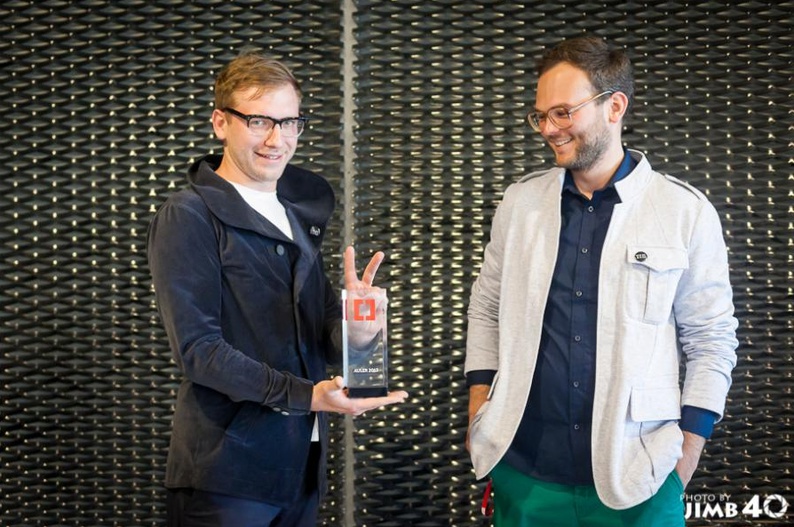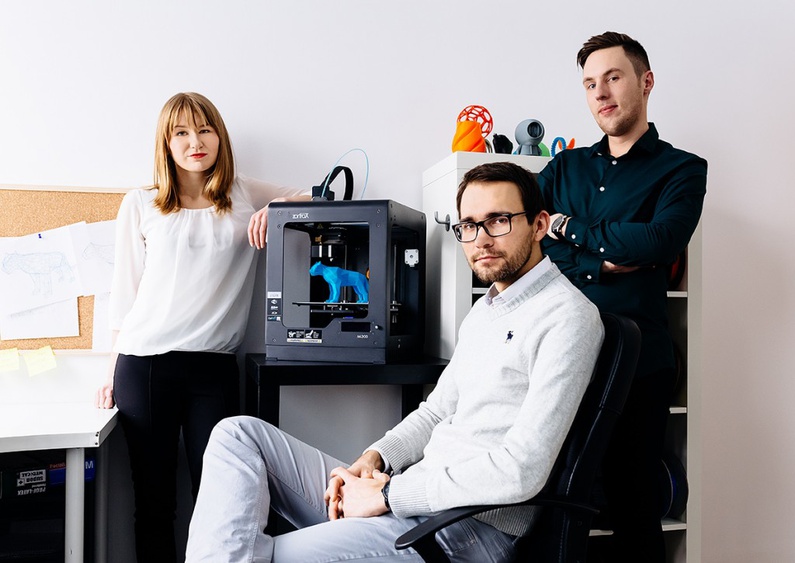
The Homo-entrepreneur, Polish style
Published on
Initially held back by the lingering chains of socialism and later sold out to the coffers of capitalism, the Polish entrepreneur has never really made his/her mark on the landscape of the country. However, it is today's younger generation of entrepreneurs which could make Poland great again. Cafébabel takes a look at one of the most promising Eastern European economies.
Although the crisis has rattled the foundations of the Old Continent, nearly two million small businesses were registered in Poland at the end of last year. In contrast, according to GUS (Polish equivalent of the National Office of Statistics, Ed.), nearly three-quarters of these businesses will not last more than five years. Are these start-ups a way of boosting the Polish economy or is it a bubble that will inevitably end up bursting, leaving behind empty pockets and shattered dreams?
So the Polish entrepreneur - who exactly are YOU?
According to Michal Juda of Showroom, the largest Polish online platform which brings together independent fashion designers and fashion lovers, the Polish landscape is ready for a real revolution led by start-ups. "Poland is the place of choice to set up shop and that's very much in fashion. This is primarily because the young generation with entrepreneurial flair are able to take the first step and are open to innovation. The Polish market is significant and has potential; that’s why some businesses can flourish here without needing to invest overseas."
Michal says that Showroom, jointly managed with his friend and fellow director Jasiek Stasz, was born out of chance, when they agreed to help fashion designers sell their work online. The two friends took their first steps in business at high-school, organising pre-parties on the Warsaw trams. At the beginning of January 2014, their faces appeared on the front cover of Pierwszy Million (First Million), published by Forbes. But can we believe the government when it presents entrepreneurial spirit as some sort of panacea? Not necessarily. According to Michal, the situation has improved in the past few years, but the bureaucracy remains convoluted and the tax system stifles business. Obtaining finance for projects is also problematic.
 In the eyes of the founders of Zortraz - inventors of the 3D printer - in spite of the commercial success of the past year, the reality of doing business in Poland is not straightforward. “When it comes to setting up your own business, the "Polishness" doesn't exactly make the task easy. Americans grow up in an environment where conditions for creating businesses are favourable: crowdfunding and other types of finance for new projects are developing at quickly. In contrast, Polish business hasn't yet adapted to the global commercial zeitgeist. However, it's only a question of time: the situation is getting better year on year," they explain.
In the eyes of the founders of Zortraz - inventors of the 3D printer - in spite of the commercial success of the past year, the reality of doing business in Poland is not straightforward. “When it comes to setting up your own business, the "Polishness" doesn't exactly make the task easy. Americans grow up in an environment where conditions for creating businesses are favourable: crowdfunding and other types of finance for new projects are developing at quickly. In contrast, Polish business hasn't yet adapted to the global commercial zeitgeist. However, it's only a question of time: the situation is getting better year on year," they explain.
Piotr Wieleżyński, who created a business a few months ago with Michał Gaszyński, has not had the same experience. Their business, Skrzynka z Pola (crates from the fields, Ed.) supplies seasonal fruit and vegetables directly from farms situated close to the capital, Warsaw. "I know a lot of people complain about the bureaucracy, but for us, setting up our company was not at all difficult: we did everything on the internet. We only saw the authorities three times and the longest we had to wait was fifteen minutes." One civil servant at the ZUS (Department for Social Security, Ed.) explains this with a smile. "I was pleasantly surprised", says Piotrek, while acknowledging that this is just the beginning of their business venture.
The life of the start-up entrepreneur
But what is everyday life really like for Poles who have their own start-ups and are their own bosses? The answer to this varies a lot according to the type of business. Piotrek, owner of Skrzynka z Pola, also works for an NGO. However, he accepts that these two jobs could clash if his business continues to flourish. "There's a likelihood that something really good could come of this, because feedback from clients has been really positive. However, the low margins on fruit and vegetable production means that we have to generate economies of scale, and then the money takes time to filter through," he acknowledges.
 This attitude is also explained by the fact that Skrzynka z Pola is both an economic and an ideological project. I have always loved good food," says Piotrek. “During my studies, I started to pay close attention to food waste, especially in large-scale food retailers. I learned that supermarkets had special agreements with food producers in which food is thrown away in the production process. I thought it would be nice to start a system which guaranteed fair pay to farmers for what they produce.
This attitude is also explained by the fact that Skrzynka z Pola is both an economic and an ideological project. I have always loved good food," says Piotrek. “During my studies, I started to pay close attention to food waste, especially in large-scale food retailers. I learned that supermarkets had special agreements with food producers in which food is thrown away in the production process. I thought it would be nice to start a system which guaranteed fair pay to farmers for what they produce.
Ending in burn-out
At Zortrax, they see things differently. Karolina Bołądź, Product Manager, sums up her day in the following way: "We growing rapidly, which means permanent changes and entire days in the office." Michal admits he is also having trouble separating his private life from his worklife. "When you have your own business, you think about it all the time. It's not possible to close the office door and to just forget about it," he adds. Michal says he is battling against his work addiction, which is good for neither him nor his business. He has stopped taking his computer on holiday with him. In spite of some tough moments, Michal would not trade in his business for any other job: he has tried to be an employee, but his entrepreneurial spirit has proved too powerful. For Karolina, too, the possibility of starting something from scratch, according to her own vision, is worth all kinds of sacrifices. What counts as well, is that the project has funded itself from the very first months of trading.
So, what is the success formula for a Polish start-up? It would seem that determination, tireless work and the ability to overcome the bureaucratic barriers all play a crucial role. “In essence, a business plan is not really worth much. It is the implementation and listening to clients' suggestions that matter the most," insists Michal. Time will tell whether young entrepreneurs are able to understand this and whether they will become the engines of tomorrow's economy, in spite of the administrative hurdles that they have to face.
Translated from Homo entrepreneur po polsku



